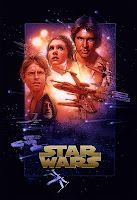 A theme across some of Conor Oberst's finest songs is a struggle with alcohol. Potentially harmless social agent and relaxant or aid to self-destruction and isolation? There exists a complicated relationship between the narrator and alcohol.
A theme across some of Conor Oberst's finest songs is a struggle with alcohol. Potentially harmless social agent and relaxant or aid to self-destruction and isolation? There exists a complicated relationship between the narrator and alcohol."Hit the Switch" is a song devoted entirely to the topic, mapping out the conflict that is felt. He contemplates quitting drinking, lamenting another morning spent in the grips of a debilitating hangover during which he feels like a hypocrite for continuing to inflict damage upon himself. "Lua" contains similar sentiment: "What is simple in the moonlight now is so complicated."
In "Hit the Switch," he also addresses the juxtaposition of friends out socializing over drinks with the narrator's own removed frame of mind: "I'm completely alone at a table of friends / I feel nothing for them / I feel nothing / Nothing" and "I'll call you eventually, when I want to talk / Until then you're invisible." The use of alcohol is not aiding him with his social interactions, but is in effect impeding them.
One reason why it is such a well crafted song is because the switch to which the title refers has him vacillating from beginning to end of narrative. Early on he talks about a switch getting hit and that things stop making sense, with his essential self getting lost in the shuffle. At the end of the song he says that when night descends, "It all starts making sense / There is no right way or wrong way, you just have to live / And so I do what I do, and at least I exist / What could mean more than this?" That mindset gets the last word, which connotes the cycle.
On the one hand, the narrator is continuing to exist, but on the other hand, living with an alcohol problem may feel like a cheated existence. "It's not something I would recommend," he cautions in "Lua," "but it is one way to live." In "Something Vague," he writes, "You see your breath in the air as you climb up the stairs / To that coffin you call your apartment / And you sink in your chair, brush the snow from your hair / And drink the cold away / And you're not really sure what you're doing this for / But you need something to fill up the days / A few more hours."
Morbid thoughts are woven into this lyrical theme. "Milk Thistle" (which is used to treat alcohol-inflicted liver damage) is a song about dying: "I keep death on my mind / Like a heavy crown / If I go to heaven / I'll be bored as hell." In "Hit the Switch," he refers to recurrent nightmares: "I have some where I die / I have some where we all die." In "Lua," he writes, "We might die from medication but we sure killed all the pain."
Conor Oberst is known for his confessional lyrics, and this theme across a number of his songs is a prime example. It is admirable that he would expose such a struggle and probe it to the extent that he does. He does not glamorize or gloss over the topic at all, either--rather, he strips it bare.
